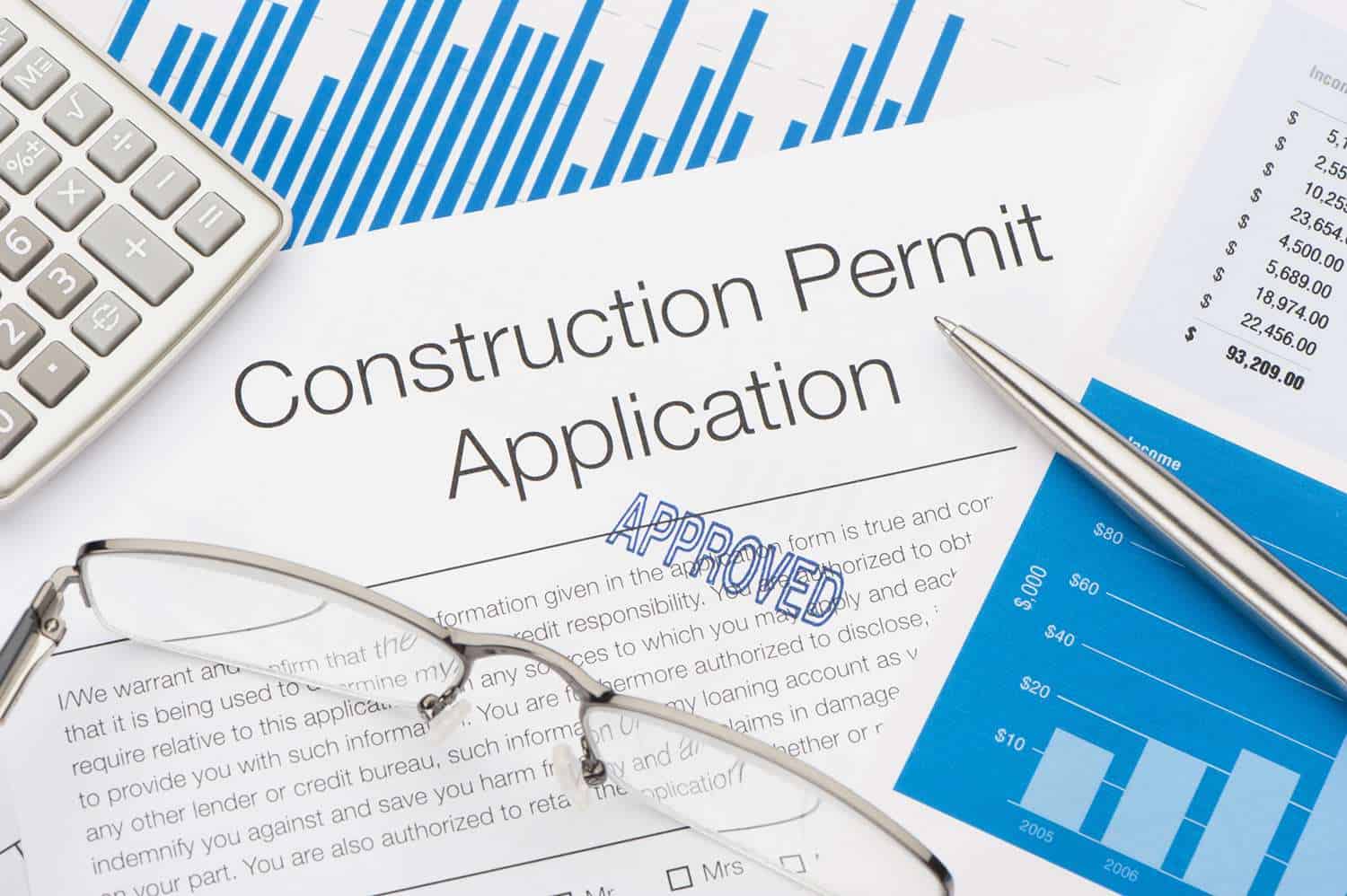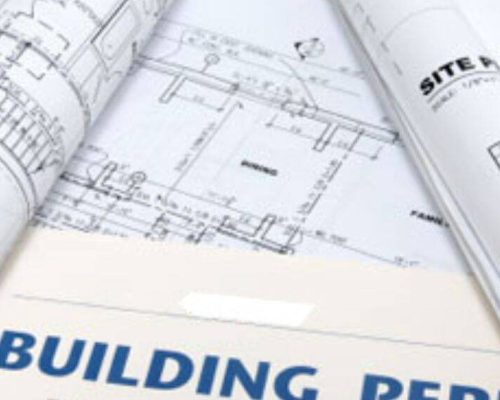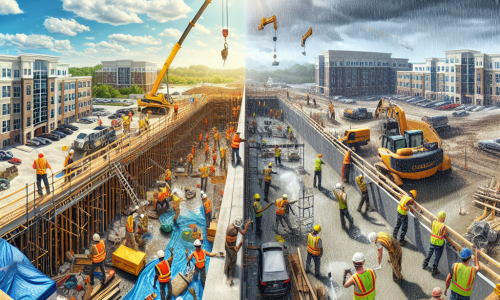Understanding and obtaining the right permits is essential for any construction or renovation project in Delaware. Building permits ensure compliance with safety codes, zoning laws, and environmental regulations, protecting both property owners and the community.
This guide outlines the significance of building permits, key permits required, the step-by-step process to secure approvals, expected timelines, and practical tips to streamline the process.
Whether you’re planning a small renovation or a large-scale development, following the proper procedures will help you avoid legal issues and keep your project on track.
Understanding Building Permits

A building permit is a legal authorization from the local government that allows the construction or renovation of a project to begin officially. Whether it’s the construction of a new project or a modification, gaining a permit ensures compliance with zoning laws, safety regulations, and construction codes.
Before initiating construction, contractors or organizations must submit an application outlining their project. The application then gets reviewed to confirm it meets all the required guidelines. Once your application is approved, the construction process can start, however, most require periodic inspections to verify adherence to local standards.
The Significance of Building Permits in Delaware
A building permit is a fundamental requirement for constructing new buildings or modifying existing structures in Delaware. The building permit aims to ensure that all the required processes align with the necessary safety codes and regulations. This helps to safeguard both property owners and the community. Failure to follow the required permit guidelines can result in major problems such as legal consequences, penalties, and removal of unauthorized structures.
One of the major advantages of gaining a building permit is securing structural protection. The permit guidelines include some important inspections at different stages of the construction, enabling professionals to effectively identify and address potential risks. This helps extend the lifespan of a structure while also reducing risks to occupants and neighboring properties. Aligning with building code guidelines protects projects from accidents or structural failures.
Building permits in Delaware help enforce zoning laws that regulate land use and urban planning. These regulations ensure that new constructions align with existing community layouts, preserving the character and functionality of neighborhoods. Adhering to zoning laws prevents issues like overcrowding, environmental harm, and disruptions to infrastructure planning. Additionally, developers who follow proper permit procedures contribute to responsible growth and sustainable development in Delaware.
From a financial standpoint, obtaining a building permit protects property owners in the long run. Unauthorized construction can lead to costly corrections, fines, and potential legal disputes. Moreover, when selling a property, having a documented permit history reassures buyers that all modifications were legally approved and meet current standards. This transparency enhances the property’s market value and prevents complications during real estate transactions.
Ultimately, building permits are not just bureaucratic requirements—they are essential safeguards that promote safety, compliance, and long-term property value. By securing the necessary permits before starting a project, homeowners and developers can ensure their investments remain protected while contributing to a well-regulated and sustainable built environment.
Key Permits and Licenses Required in Delaware

When undertaking a construction project in Delaware, obtaining the necessary permits and approvals is crucial to ensure compliance with state and local regulations. Below is an overview of essential permits required for building projects.
1. Building Permit
Gaining a building permit is essential for most projects such as new building construction, renovation and structural changes of any existing projects. It aims to comply with Delaware State Building Codes and local regulations
- Required Documents: Architectural plans, site plans, structural reports, energy compliance documents, and a completed application.
- Where to Apply: City or county Building Department (New Castle, Kent, or Sussex County).
2. Zoning Permit
Zoning permits ensure that construction projects comply with regulations regarding land use, building height, and property setbacks in Delaware.
- Required Documents: Site plan, zoning application, and possible neighborhood impact assessment.
- Where to Apply: City or county Zoning Department.
3. Environmental Review
Projects that might have potential environmental impact must go through a review process to adhere to the Delaware Environmental Protection Act.
- Required Documents: Environmental impact assessment, site plan, and mitigation plans.
- Where to Apply: Delaware Department of Natural Resources and Environmental Control (DNREC) or the local Environmental Services Division.
4. Coastal Zone Permit
For most projects in Delaware’s Coastal Zone, this permit aims to ensure adherence with Coastal Zone Act guidelines to protect natural resources safety.
- Required Documents: Coastal site plan, environmental assessment, and completed application.
- Where to Apply: Delaware Coastal Programs Office under DNREC.
5. Electrical Permit
This is another crucial permit needed for any installation, alteration or repair of electrical systems. This permit aims to ensure compliance with the National Electrical Code (NEC).
- Required Documents: Electrical plans and a completed application.
- Where to Apply: City or county Building Department.
6. Plumbing Permit
Necessary for plumbing system installations, alterations, or repairs, including water, sewer, and gas lines, by the Delaware Plumbing Code.
- Required Documents: Plumbing plans and a completed application.
- Where to Apply: City or county Building Department.
7. Mechanical Permit
Required for HVAC system work, ensuring safety and efficiency standards per the Delaware Mechanical Code.
- Required Documents: Mechanical plans, energy compliance documents, and a completed application.
- Where to Apply: City or county Building Department.
8. Fire Department Approval
Mandatory for commercial projects and large residential developments to ensure compliance with fire safety regulations.
- Required Documents: Fire safety plans and a completed application.
- Where to Apply: Local Fire Marshal’s Office or Delaware State Fire Marshal.
9. Floodplain Development Permit
If a project is in a floodplain, this permit ensures compliance with the National Flood Insurance Program (NFIP) and local floodplain regulations.
- Required Documents: Floodplain development plan, elevation certificate, and site plan.
- Where to Apply: City or county Engineering Department.
Ensuring you have the necessary permits before beginning construction can prevent legal issues and ensure your project runs smoothly while meeting safety and environmental standards.
Steps to Obtain Permits and Licenses for Construction in Delaware

Navigating the permitting process is essential to ensure your construction project complies with local and state regulations in Delaware. Here’s a detailed step-by-step guide to help you secure the necessary approvals:
Step 1: Identify Required Permits and Approvals
Before starting any construction work, research and determine the permits and licenses needed for your project. Requirements vary depending on the type of construction, zoning laws, and environmental considerations. Key permits may include building permits, zoning permits, environmental approvals, and trade-specific permits like electrical or plumbing licenses. Consulting local authorities or a professional contractor can help clarify specific requirements for your project’s location.
Step 2: Gather Necessary Documentation
Once you know the permits required, collect all necessary documentation. This typically includes site plans, architectural designs, structural engineering reports, environmental impact assessments, and energy compliance reports. Double-check that your plans meet all legal and regulatory requirements to avoid unnecessary delays. In some cases, additional studies, such as traffic impact assessments or floodplain analysis, may be required.
Step 3: Submit Applications and Pay Fees
After compiling the required documents, submit your applications to the relevant city, county, or state agencies. This may include the local Building Department, Zoning Office, Fire Marshal, or Environmental Department. Be sure to pay any associated fees, which vary depending on the scope and complexity of the project. Some permits may require public notices or hearings before approval, so factor in processing time when planning your project timeline.
Step 4: Complete Inspections and Compliance Reviews
Many permits require site inspections to ensure the work complies with approved plans and safety standards. Inspectors may review structural integrity, fire safety measures, environmental impact, and accessibility requirements. If any issues arise during inspections, you may need to revise your plans or make modifications before approval is granted. Staying proactive and addressing any concerns promptly will help keep your project on schedule.
Step 5: Begin Construction Following Approval
Once you receive the necessary permits, you can begin construction, ensuring that all work adheres to the conditions set by the authorities. Regular inspections may be required at different stages of construction to verify compliance. Keeping clear records of approvals and inspection reports will be useful in case of future reviews or renovations. Any deviations from the approved plans may require additional approvals or adjustments.
By following these steps, you can ensure a smooth and legally compliant construction process in Delaware, avoiding unnecessary fines or delays.
Building Permit Timelines in Delaware

The time needed to obtain a building permit in Delaware varies based on project complexity and local regulations. Small projects, like minor renovations, typically take 2 to 4 weeks, while larger developments, such as new constructions or commercial buildings, may take 2 to 6 months due to extensive reviews and approvals.
Factors influencing the timeline include project type, zoning compliance, environmental assessments, and the permitting office’s workload. To avoid delays, applicants should submit complete documentation and consult local authorities early in the process. Proper planning ensures a smoother, faster approval experience.
Obtaining a building permit in Delaware is a crucial step to ensure your construction project complies with local regulations and safety standards:
Common Challenges and Strategies for Success in Delaware’s Building Permit Process

Navigating the permitting and zoning approval process in Delaware can be a complex task for both homeowners and developers. Being aware of potential challenges and proactively addressing them can significantly ease the process.
Permit Rejection
One major obstacle applicants face is the rejection of permit applications. This often stems from missing documentation, non-compliance with zoning laws, or a lack of detailed project descriptions. To minimize the risk of rejection, it is crucial to carefully review all submission guidelines provided by local authorities. Seeking guidance from an experienced professional can also be beneficial in ensuring that all requirements are met and that the application is thorough and accurate.
Project Revision and Feedback
Another common issue involves the need for project revisions based on feedback from zoning officials. These modifications may relate to structural design, land use considerations, or environmental impact regulations. When revision requests arise, maintaining open and direct communication with the appropriate authorities can lead to a smoother resolution. Scheduling a meeting with zoning personnel can provide clarity on their concerns and facilitate a more efficient revision process. Additionally, remaining flexible and willing to make necessary adjustments can help foster a positive working relationship with regulatory officials.
Delayed Approval
Delays in approval are another frequent challenge, often caused by high demand at permitting offices or the complexity of the project. To reduce wait times, applicants can consider submitting their paperwork during periods of lower processing activity and ensure that all required materials are included from the outset. Planning for potential delays by incorporating buffer time into project timelines can also help mitigate stress and keep construction schedules on track.
Tips to Follow for a Smooth Building Permit Process
Start Your Process Early
Initiate the permit application process well before your planned construction start date. Permit approval times can vary, and starting early helps prevent delays.
Stay Organized
Maintain a dedicated folder whether physical or digital for all project-related documents, including applications, plans, receipts, and correspondence. Organized records facilitate a smoother application process and future reference.
Consult Local Authorities
If you’re uncertain about any requirements or procedures, don’t hesitate to contact your local building department. They can provide guidance specific to your project’s location and scope.
By adhering to these tips, you can navigate Delaware’s building permit process more efficiently, ensuring your project progresses without unnecessary obstacles.
Conclusion
Securing the proper building permits in Delaware is a crucial step in ensuring safety, legal compliance, and smooth project execution. From understanding required permits to following the approval process and adhering to timelines, proper planning can prevent costly delays and legal issues.
By staying organized, consulting local authorities, and starting early, property owners and developers can navigate the permitting process efficiently. Following these guidelines not only protects your investment but also contributes to a safe and well-regulated built environment.










